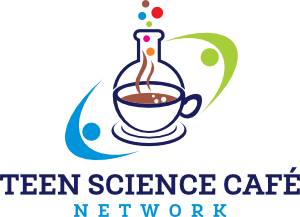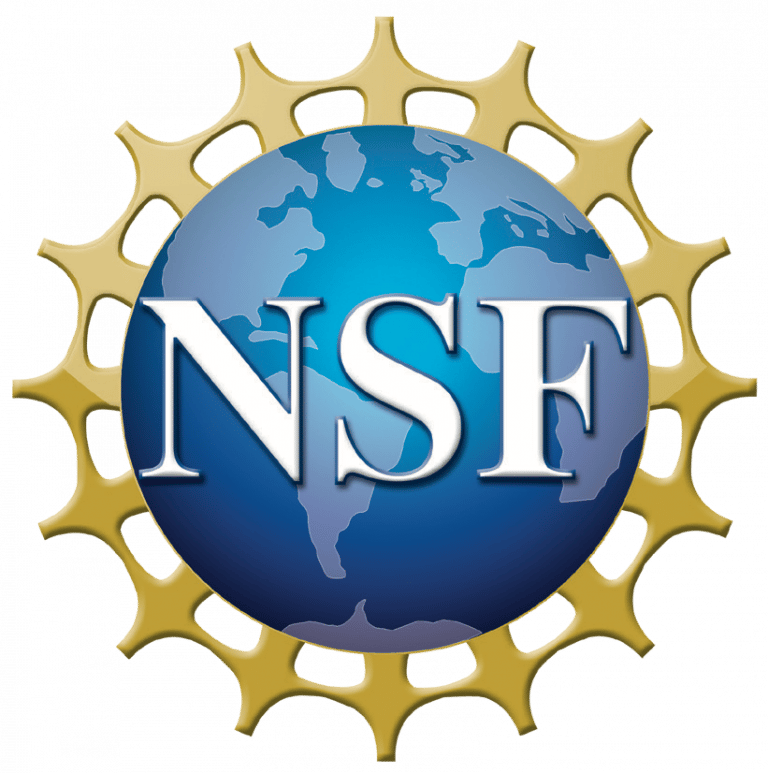Core Design Principles
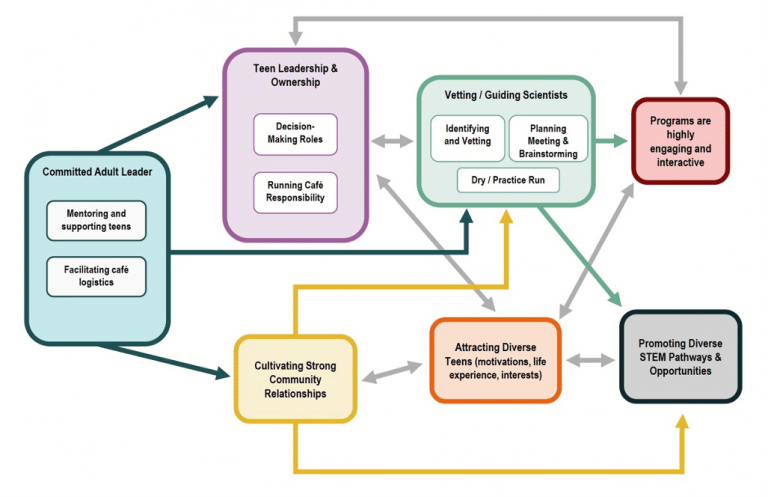
1. Cafés are Highly Engaging and Interactive
Cafés are structured to promote lively conversation and interaction among teens and the STEM expert; a teen science café program is not a lecture series.
What accounts for the overwhelming popularity of the teen science café model is the blend of socializing over a light meal while having personalized experiences with a STEM expert on an interesting topic.
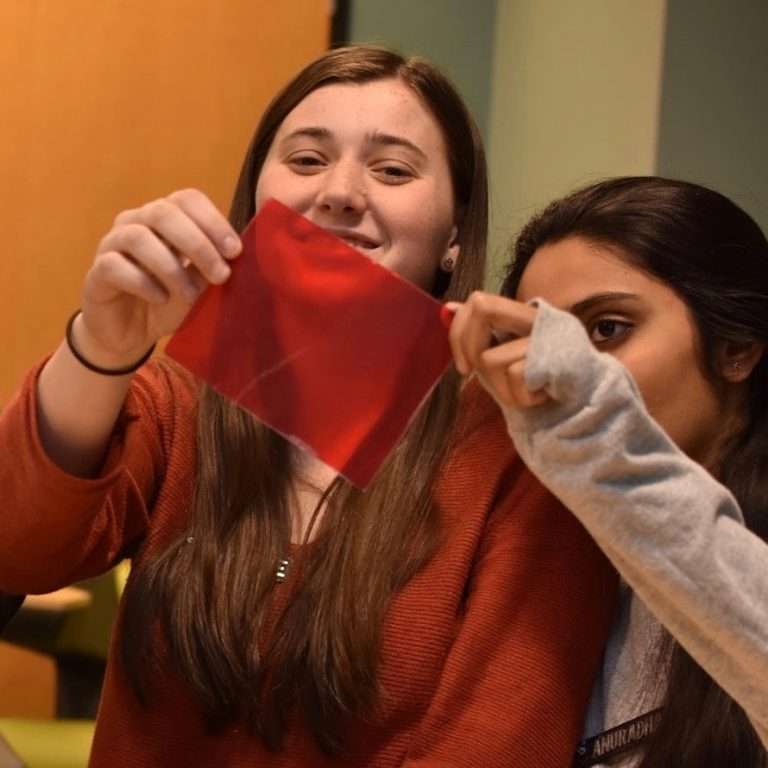
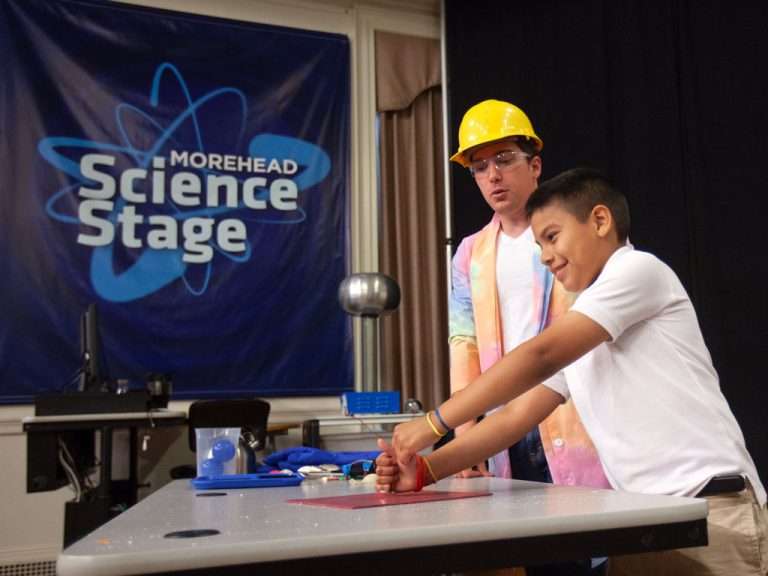
2. Identify, Vet, and Guide STEM Experts on How to Work with Teens
After identifying and vetting a potential presenter, a welcoming invitation is sent that includes a program summary and a Presenter Guide. The adult leader then meets with the STEM expert to frame the presentation, focusing on storytelling, the big ideas, why it matters, and how it will change our world—supported by a few key, jargon-free graphics. With some coaching by the adult leader the presenters can readily adopt the conversational, interactive approach that pulls in the teen audience.
3. Teens Gain Ownership of the Program
Teen Leadership Teams are responsible for all aspects of their program, with adult leaders providing support in the background.
Teen leadership is of fundamental importance to a teen science café program. Allowing teen leaders to take charge of all aspects the program, with an adult leader providing support in the background, gives those teens a sense of ownership of the program, and unleashes the teens’ energy and creativity.
An adult leader will meet with the teen leaders as often as there are cafés to review how the previous café went— discuss any issues, what improvements are warranted—and to plan and practice leadership roles for the upcoming café. These meetings strengthen the teen leaders’ sense of purpose and camaraderie.
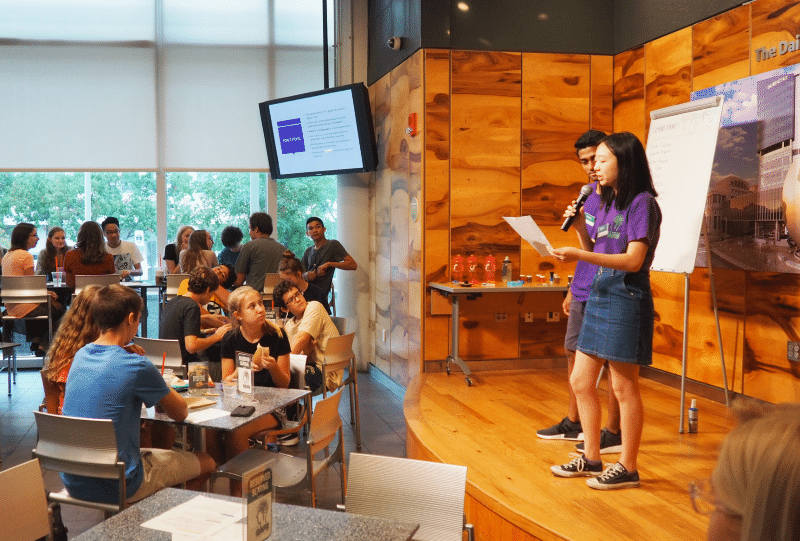
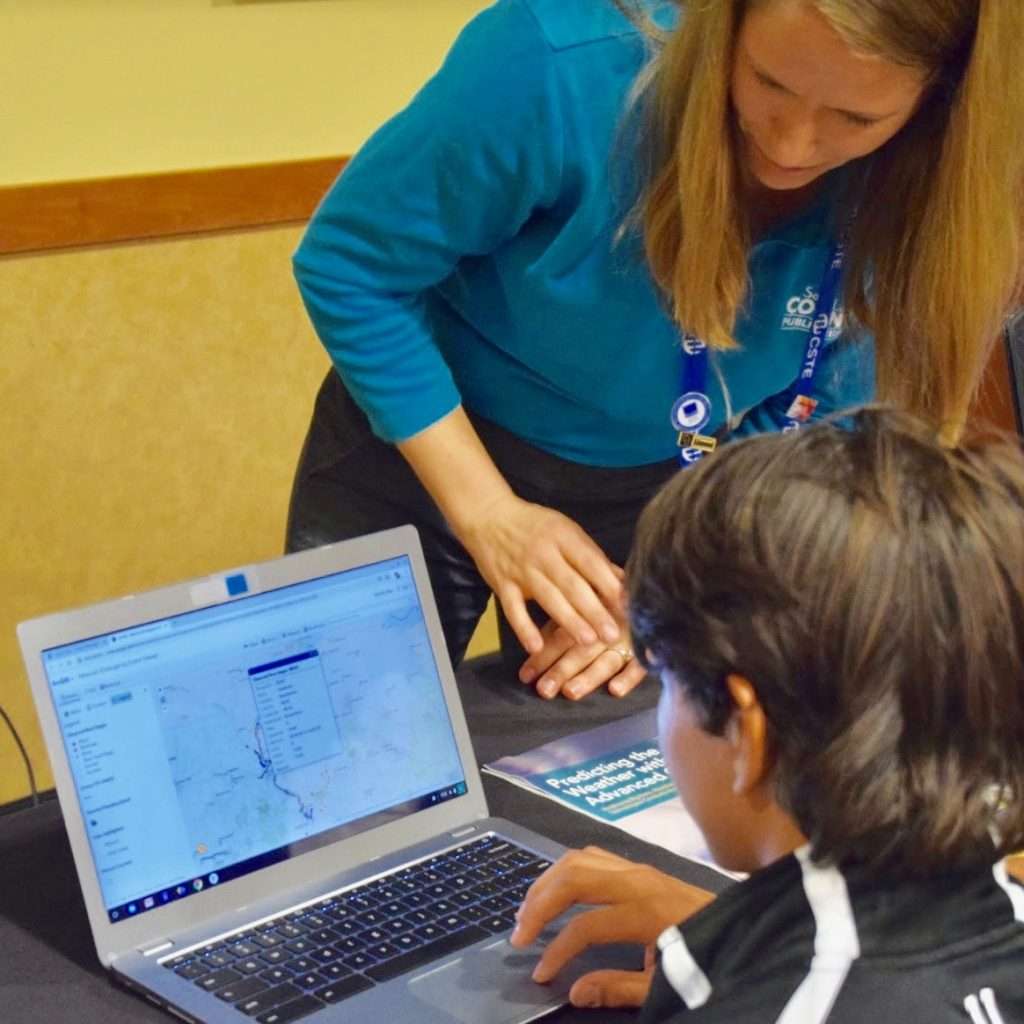
4. Each Site Must Have a Committed Adult Leader
The adult leader is the lynchpin of the café program. Although many teens eagerly volunteer to be teen leaders, their success in this role is heavily dependent on the leadership skill of the adult leader. The role of the adult leader is first and foremost to instill in the teens a proactive mind set and a sense of freedom to take responsibility for doing what needs to be done to make their program a success, in short to grow as leaders. With this mind set teen leaders will seek to improve, innovate, and perfect their program. The teens will also have the freedom to make mistakes, learn from them, and improve.
Nurturing the leadership development of teen leaders is the most important and challenging of an adult leader’s job, but other responsibilities include vetting and coaching presenters, keeping the schedule, communicating with parents, and maintaining continuity of the venue.
5. Café Programs Seek to Attract Teens with Diverse Motivations and Life Experiences
Diversity includes ethnicity, culture, and gender, but also motivations to learning about science. Teen science cafés are for all curious teens.
Many teens start attending teen café events primarily for the social interaction, and would not characterize themselves as “interested in science.” They get a new perspective on science and the work of STEM experts wholly different from what they get in school. They may gain a new perspective on relevance of science to their lives. Some may discover the possibility of a career in science.
The teen café model allows learning that is meaningful to the lives of teens. This can be a challenge when presenters attempt to engage teens that are traditionally underrepresented in STEM disciplines, while simultaneously lacking familiarity with their culture. Such disconnects can result in the under-valuing and/or lack of interest in café topics. Thus, cultural sensitivity is essential for café programs, so that the teen café model can be accessible to and impactful on teens of all backgrounds.

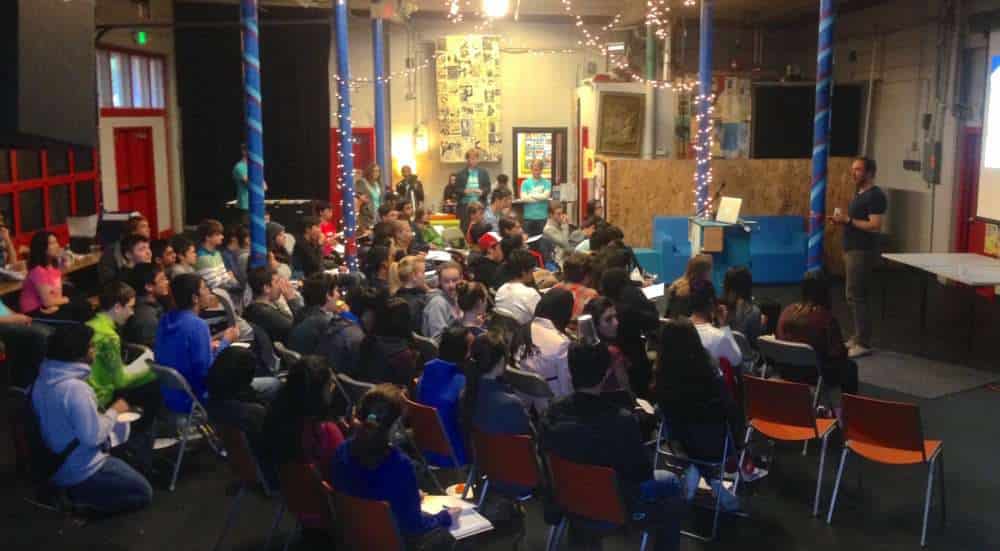
6. Café Organizers Cultivate Community Relationships
Building relationships with scientific and teen-serving organizations can increase participation of both teens and STEM experts, support community awareness, and sustain a teen science café program.
Partnerships can take a wide variety of forms. It can be a simple as a collaboration of two or more teen café sites to work on a new strategy for some key program area. Partnerships with academic, research center, health care, museum, or other type organizations can insure a steady flow of high-quality presenters. Parental support is very important, and partnerships with parent-teacher or other parent organizations and use of social media can build this support.
Partnerships with Science Festivals, Science Fairs, Science Olympiad, Supercomputing Challenge, robotics clubs, and other such programming can support and sustain teens’ interest and engagement in science. Partnerships with schools build teachers’ support via promoting the teen café program in their classrooms and posting of flyers; morning announcements of upcoming café events; announcements during half time at sporting events; and posting of banners and announcements of school marquees.
Local TV and radio stations are often eager to promote youth programming, and may conduct interviews with local STEM experts that can be likely candidates for café presenters. Partnerships with scouting, 4-H, Boys and Girls Clubs, and YMCA/YWCA program may draw teens to the café program or the creation of new teen café sites.
